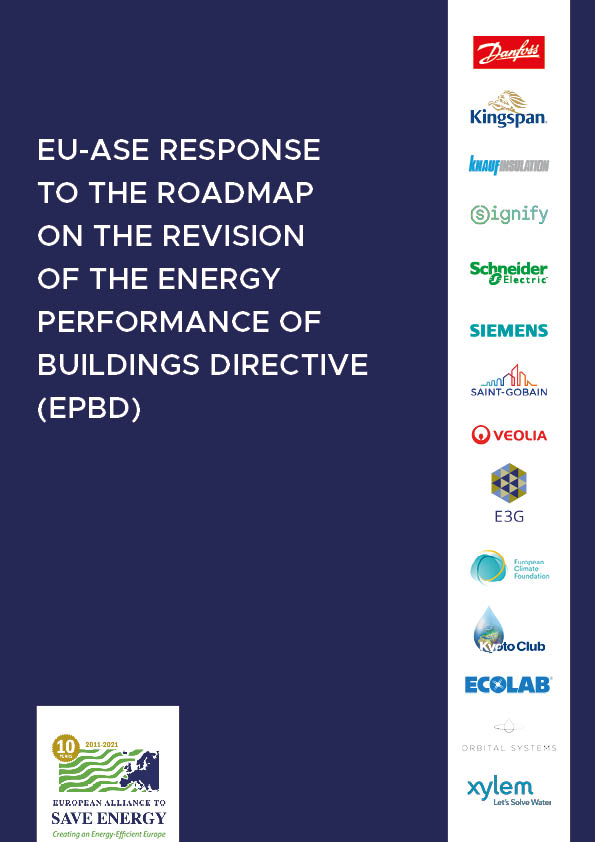Response to the Roadmap on the EPBD revision

The European Alliance to Save Energy (EU-ASE) welcomes the opportunity to provide feedback to the European Commission’s publication of an inception impact assessment on the revision of the Energy Performance of Buildings Directive (EPBD). The Alliance brings together businesses, think thanks and Members of the European Parliament to ensure that the voice of energy efficiency is heard across the business and political community.
The EU has committed to a net-zero economy by 2050, and to reach at least -55% GHG reductions by 2030. To get there, this decade must be witness of an unprecedented wave of renovations resulting in buildings emissions reduction by 60% by 2030. Reducing energy demand and increasing energy efficiency in the buildings sector is a prerequisite for achieving the EU ’s energy and climate objectives. Currently around 75% of the building stock is energy inefficient yet almost 85-95% of today`s buildings will still be in use in 2050 . Only 1% of European buildings undergo energy renovations each year and on average the energy saved through renovations is just 9% in homes and 16% in commercial and industrial buildings. The yearly deep energy efficiency renovation rate barely reaches 0,2% for both residential and non-residential buildings.
At this pace, cutting carbon emissions from the building sector to net-zero would require centuries. Last but not least, 75% of buildings energy consumption is still based on fossil fuels. The renovation rate is therefore far too low considering the environmental challenges and the economic opportunities that lie ahead. The Renovation Wave acknowledges this problem and the need to increase the rate and the depth of renovations setting the objective of at least doubling the annual energy renovation rate by 2030 in view of reducing GHG emissions of buildings by at least 60%. EU-ASE believes that the review of the EPBD is a unique opportunity to increase energy savings, optimise energy consumption and reduce GHG emissions from the buildings sector. In this respect, the ongoing revision of the EPBD is key to introduce new policy signals to stimulate a minimum of a 3% renovation rate per year combined with an average energy efficiency improvement of 75% across Europe. This will help the EU to reach its environmental goals while contributing to fast economic recovery, local job creation and delivering of multiple benefits to citizens .
Other measures designed for the decarbonization of the building stock, such as carbon pricing, can be part of this effort, yet we believe it should not replace impactful regulatory measures such as the EPBD which drives energy savings necessary to meet climate neutrality. In our view, policies related to the building sector, including the EPBD, should be kept in the Effort Sharing Regulation sectoral scope with increased ambition.
